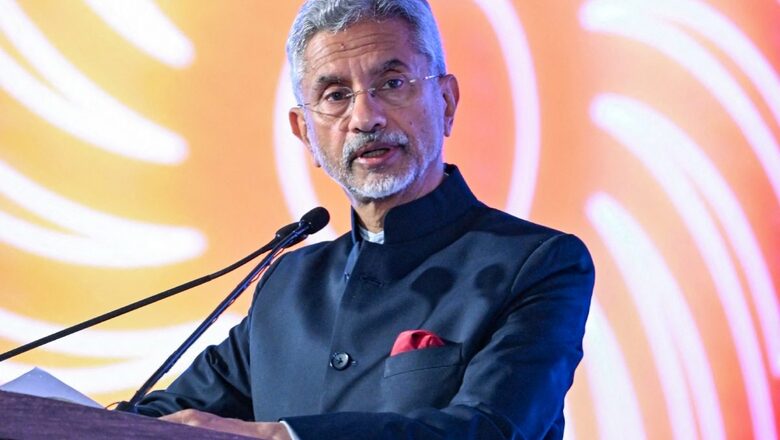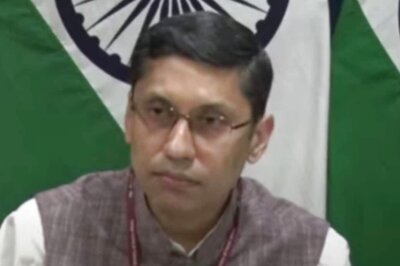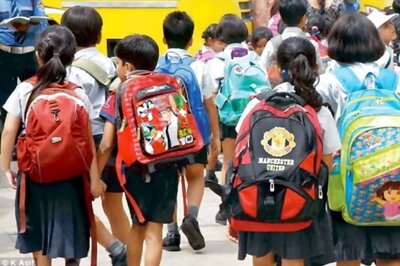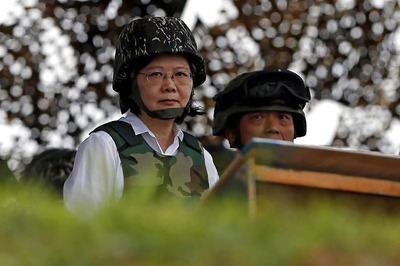
views
It was necessary to acknowledge China will influence India’s neighbours, but New Delhi must not be scared of such “competitive politics”, External Affairs Minister S Jaishankar said on Tuesday as he also emphasised on the Indian Navy’s proactive role in the Red Sea region given its maritime capability and capacity to help those in distress.
Interacting with students at the Indian Institute of Management (IIM), Mumbai, Jaishankar replied to questions on a range of issues — from China to India’s strained ties with the Maldives, deployment of Naval warships in the Red Sea region and the ongoing Israel-Hamas war.
Referring to piracy and drone attacks on merchant vessels in the key Red Sea region and New Delhi’s response, he said India will not be considered a responsible country if bad things are happening around its neighbourhood and “we say I have got nothing to do with this”.
There are problems in every neighbourhood, but ultimately “neighbours need each other”, he said when asked about India’s strained ties with the Maldives, whose new President Mohamed Muizzu is seen as pro-China. There is competition with regard to the growing Chinese influence in the region, but it would be wrong to term it a failure of Indian diplomacy, asserted Jaishankar, who served as Ambassador in Beijing during his decades-long career as an IFS officer.
“We must recognise, China is also a neighbouring country and in many ways will, as part of competitive politics, influence these countries. I don’t think we should be scared of China. I think we should say ‘okay, global politics is a competitive game. You do your best, I will do my best’,” the diplomat-turned-politician remarked.
Being the world’s second largest economy, the Communist giant will deploy resources and try to shape things in its way, he said, adding, “why should we expect otherwise, but the answer to that is not to complain that China is doing it.” “I would say today…we should not be scared of competition. We should welcome competition and say I have the ability to compete,” Jaishankar added.
Talking about India’s track record of helping its neighbours, he cited the example of Sri Lanka which was provided with multi-million dollar assistance by New Delhi when the island nation was hit by a grave economic crisis.
To a question about the ‘India Out’ campaign in the Maldives, Jaishankar urged the audience to “trust” Indian diplomacy. “Every country has problems in its neighbourhood. It is never as good as they say it is. It is never as bad as they say it is. There will be problems. Our job is to anticipate, assess, respond. At the end of the day neighbours have relationships with each other,” the external affairs minister said. “At the end of the day, neighbours need each other. History and geography are very powerful forces. There is no escape from that,” he added.
Earlier this month, the newly-elected Maldivian President Muizzu asked India to withdraw by March 15 its military personnel deployed in the archipelago nation in the Indian Ocean. Also, breaking a tradition followed by past Maldivian Presidents, Muizzu visited China ahead of India. Jaishankar said India’s greater capability, its own interest and reputation today warrant that it help those in difficult situations, comments made in reference to the Navy’s deployment of warships in the Red Sea region to deal with attacks on merchant navy vessels.
The Indian Navy has deployed 10 of its ships in the region, Jaishankar said. “India’s greater capability, our own interest and our reputation today warrant that we actually help out in difficult situations,” he said. J aishankar said there is a problem of piracy as well as drone attacks on merchant navy ships in the Red Sea region. “We will not be considered a responsible country if bad things are happening around our neighbourhood and we say I have got nothing to do with this. When you are in trouble, the neighbourhood will say the same,” he said. Turning to the West Asia crisis, Jaishankar asserted India favours a two-state solution to end the decades-long Israel-Palestine conflict.
He said the conflict must be viewed in totality and termed the Hamas’ deadly incursions inside Israel nearly four months ago as a terrorist attack. Jaishankar, It is certainly the view of India, and a very large number of countries that (the problem can be) only be done (resolved) through a two-state solution that there has to be a Palestinian state side-by-side with the state of Israel.
He said what happened on October 7, 2023, was a terrorist attack, referring to Hamas militants launching a series of assaults inside Israel after storming across the border. About 1,200 people, mostly civilians, were killed in the attacks, while nearly 250 Israelis and other nationals were taken hostage by Hamas.
I don’t think there should be confusion on that and as a country which has itself experienced so much terrorism, I think it’s important that we recognise that and we expressed that solidarity (with Israel) as another victim of terrorism, noted the External Affairs Minister. On Israel’s strong response to the Hamas attacks, which triggered a war in the Gaza Strip, he said when any country responds, it is equally important to observe international laws, and called for avoiding civilian casualties.
















Comments
0 comment